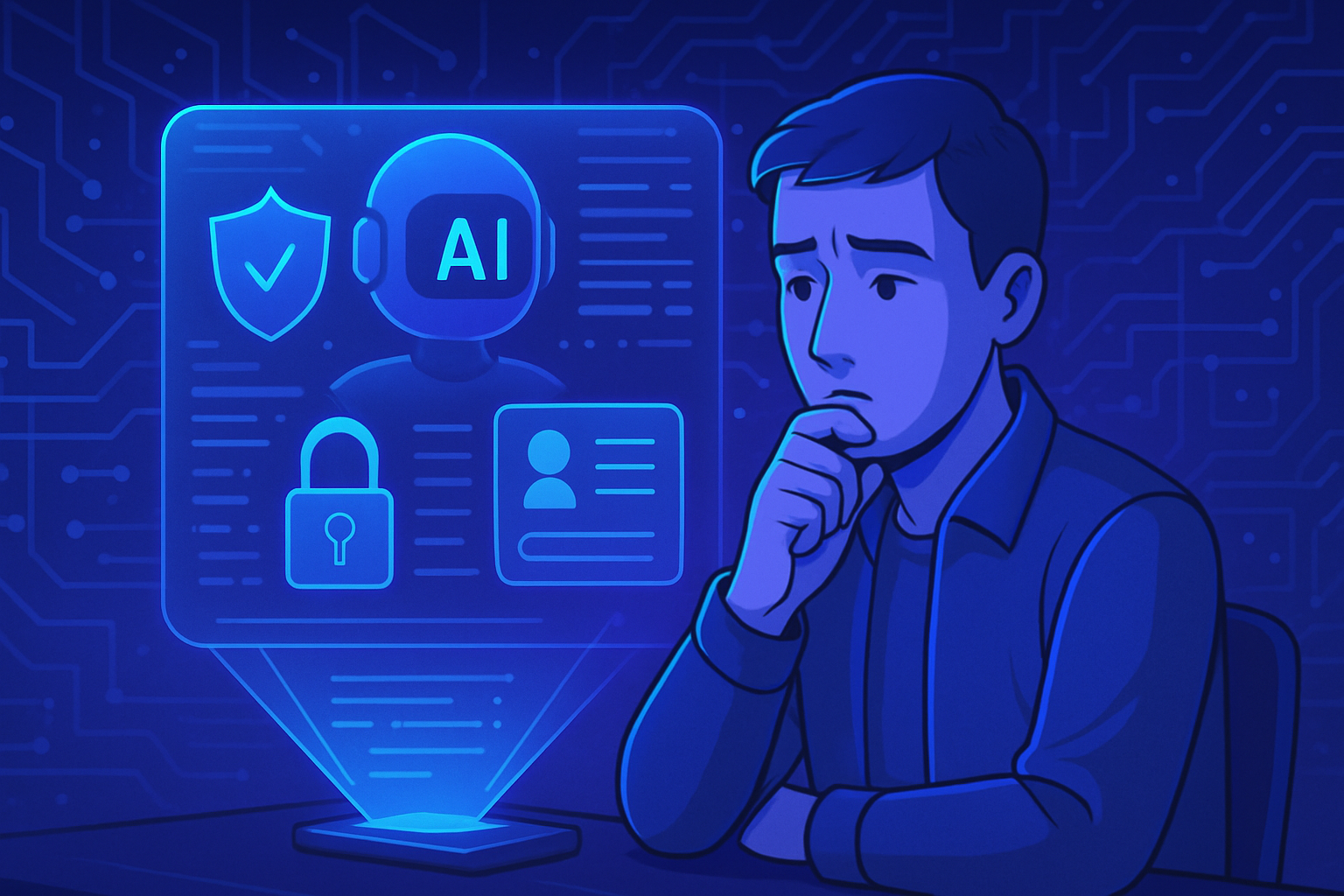Entrusting your personal data to an artificial intelligence requires deep reflection. The risks to your privacy multiply as these tools demand alarming levels of access. The indiscriminate acceptance of such requests exposes your digital security to insidious threats. Every time you interact with an AI, ask yourself: is this service really worth it compared to your sensitive data?
The new data collection practices by artificial intelligence
Artificial intelligence tools are invading our daily lives. From applications to search engines, users often find themselves compelled to provide personal data that exceeds their primary needs. The case of web browsers incorporating AI assistants, such as Comet, illustrates this alarming trend.
Comet facilitates information searching and automates certain tasks, but it requires very broad access rights. TechCrunch has noted that the request for access to a Google Calendar comes with a multitude of permissions that are inaccessible to the average person. Granting these rights amounts to opening a window to valuable personal information, from emails to calendar events.
An alarming normalization of data access
Initially, innocuous applications like flashlights or calculators would request access to contacts or location without clear justification. Today, this trend has intensified with AI applications that, under the guise of efficiency, expose users to similar demands, distorting the perception of privacy.
The promises of time savings, such as meeting transcription, come with intrusive requests. Users often have to validate access to their real-time conversations, their contacts, and several personal pieces of information. Meta, for instance, is testing AI applications that exploit users’ yet-to-be-shared photos, thus continuing this trend of data overreach.
The risks associated with using AI assistants
Considering the use of AI assistants requires a rigorous assessment of security risks. Users place their trust in technologies with notable error histories. Meridith Whittaker compares this phenomenon to “putting your brain in a jar,” emphasizing that this technological dependence leads to increased vulnerability.
Entrusting an AI with mundane tasks, such as booking a table, leads to intrusions into your browsing history and personal information. The request for access to your passwords and history falls within a dangerous framework, where the trust placed in the technology becomes a burden.
An unbalanced cost-benefit analysis
Questioning the legitimacy of the permissions requested by certain AI applications becomes imperative. A simple cost-benefit analysis reveals that spending time completing a task, rather than surrendering your data, may be wiser. Allowing such broad access to confidential information amounts to disengaging from control over your own digital life.
The consequences of this practice go beyond mere inconvenience. Users are often unaware of the potential repercussions, especially when the companies developing these technologies explore and monetize personal data. For detailed information on this data dynamic, consulting reliable sources is crucial.
Reflections on managing personal data
The general public must adopt increased vigilance in the face of the exponential demand for access to personal data. The legitimate questioning of the applicability of the permissions required by AI applications is necessary. The question arises: what justifies access to such sensitive data?
Users must assess whether the anticipated benefits of an AI application truly outweigh the drawbacks related to the loss of their privacy. Preserving your digital integrity remains the priority amid an often uncertain technological horizon.
Common FAQs
Why should I be concerned about the data I entrust to artificial intelligences?
It is essential to be concerned about personal data because artificial intelligences can request extensive access to your private information, which can compromise your privacy and security.
What types of personal data can artificial intelligence applications request?
AI applications may request access to data such as your contacts, emails, calendars, locations, and even your browsing history.
How do these applications use my personal data?
Artificial intelligence applications may use your data to improve their services, personalize experiences, or even for commercial reasons, such as selling data to third parties.
Is it safe to use intelligent assistants that request access to all my information?
Using intelligent assistants with extensive access can be risky, as it involves placing a great deal of trust in a technology that may make mistakes. It is crucial to think carefully about the information you share.
What precautions should I take before using an artificial intelligence application?
Before using an AI application, read the terms of use, check the requested permissions, and assess whether you are comfortable sharing that data.
What are the risks associated with excessive access to personal data by AI tools?
Risks include identity theft, privacy breaches, and the misuse of your data for commercial purposes without your informed consent.
What should I do if an AI application requests too many permissions?
If an application requests too many permissions, it is advisable not to use it and to find an alternative that respects your privacy more.
How can I protect my privacy while using AI-based technologies?
To protect your privacy, share only necessary information, configure privacy settings, and be aware of the data you consent to share with applications.






